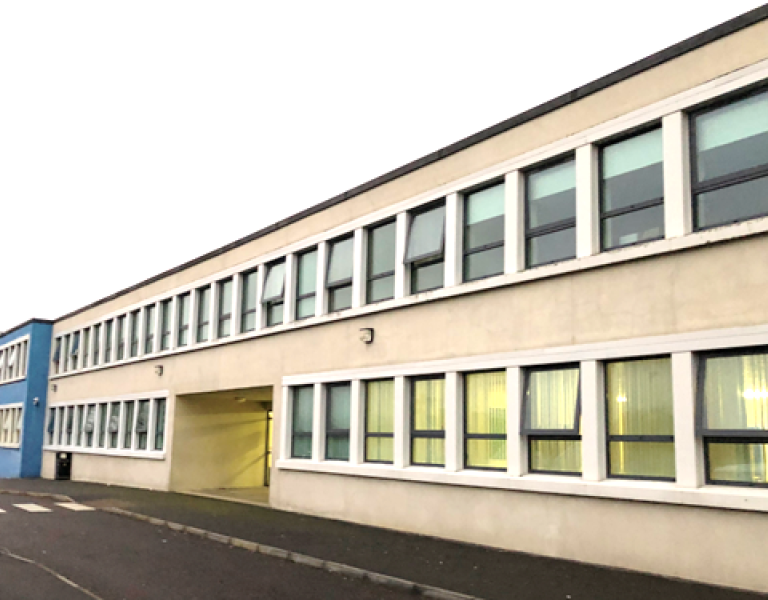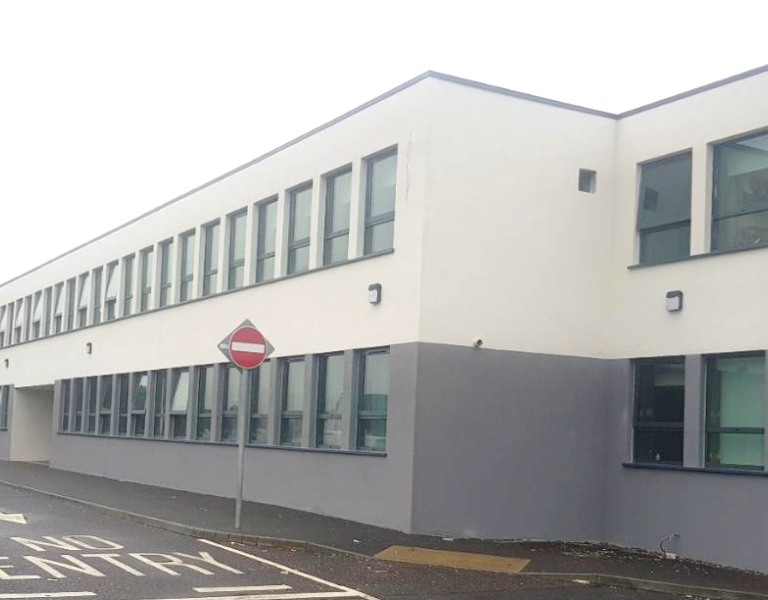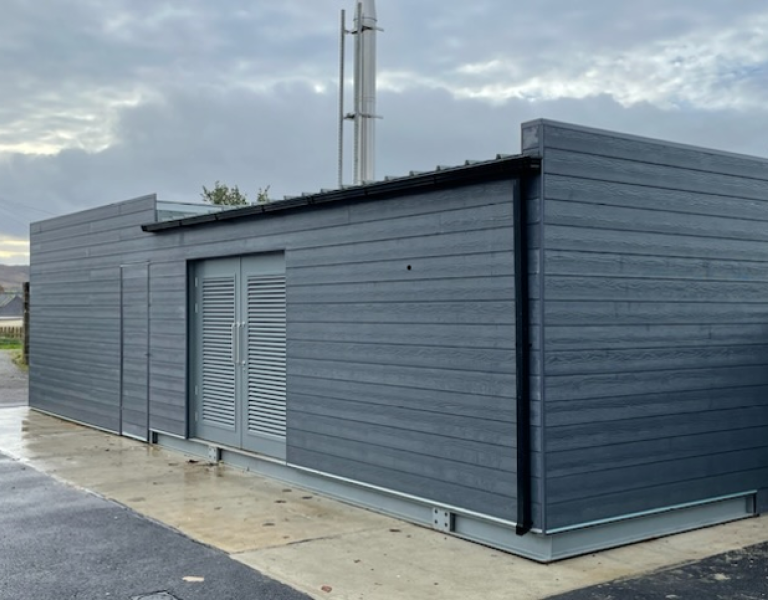Pathfinder - St Columba's Comprehensive School, Glenties, Co. Donegal
The objective of the project was to upgrade the building energy rating (BER) from a C3 to a targeted B1, while reducing carbon emissions by a minimum of 51%.
Objective
The 2023 Climate Action Plan reaffirmed several targets for public bodies that had been originally introduced in previous iterations of the plan. These include a requirement that all public bodies must reduce their GHG emissions from burning fossil fuels by 51% by 2030, compared to a 2016-18 baseline. They must also reduce their electricity emissions in line with anticipated supply-side reductions.
SEAI's pathfinder programme has been working collaboratively with public sector organisations to develop scalable solutions to meet these targets, for benefit across the public sector and the wider non-domestic sector. One of these programmes is the School Pathfinder Programme which commenced in 2017. This pathfinder is a great example of collaboration, ensuring the deployment of new design approaches and that technologies are introduced to the school sector on an evidence- based approach. This programme continues to assist the Department of Education to explore options and test various solutions for decarbonised energy efficiency solutions in its broad range of school building types.
The project team built a 3D model of the existing school building, updating with proposed improvements to investigate the impact of proposed measures. This modelling, together with technical suitability assessments (such as electrical MIC restrictions which could impact the installation of an air source heat pump) resulted in the recommended works, to include the installation of a biomass boiler and fabric upgrade.
Background
The original flat-roofed two storey school building was built in 1966. Five extensions have been added to the school since then, with the latest extension, a two- storey pitched roof extension, completed in 2007. The original school and extensions, except for the extension completed in 2007, were traditional cavity wall constructions, with a 50mm cavity and no insulation. The 2007 extension included a 60mm Polystyrene cavity insulation board.
In 2007, the windows were replaced with doubled glazed aluminium units. In 2011, the flat roofs were overclad with 100mm of PIR board and PVC membrane. The pitched roof is a prefinished metal panelled roof with 110mm thick insulation. Both windows and roofs were deemed to be in very good condition and fit for purpose during the assessment process to define the pathfinder project scope. The existing lighting scheme used LEDs and was retained.
After examination by the design team, it was recommended that the school could best improve its facilities by focussing replacement of the existing oil-fired boilers with a biomass wood pellet boiler to reduce carbon emissions. An air source heat pump was not suitable for the project due to Maximum Import Capacity (MIC) restrictions. External wall insulation was also recommended as a means of reducing heat demand. 4kWp solar panels were also installed as part of the upgrade works.
Project Description
The existing 50mm empty external wall cavities were pumped with bead insulation and 120mm EPS insulation fitted to the external walls. All existing windowsills were cut back to the existing wall line. Existing windows were then removed and moved outwards while insulation was fitted against the window frame, with joints taped internally and externally to ensure airtightness. The re-using of the existing quality windows was estimated to save €350,000 ex VAT along with the associated embodied energy.
Existing oil fired boilers and associated oil storage tanks were removed and replaced with a prefabricated containerised biomass wood pellet boiler to act as the new primary boiler. A higher efficiency LPG fired boiler was also installed to act as a backup in case any downtime occurred for the biomass boiler. The biomass heating system was designed with a targeted building carbon emission reduction of approximately 90% relative to the baseline. It operates on a ESCO model basis with the ESCO company operating and maintaining the system and selling heat to the school authority. This installation qualifies for SEAI's Support Scheme for Renewable Heat (SSRH) tariff, which provides tariff support based on useable heat output from the biomass unit.
"The day I knew the project was definitely a success was the winter's day I heard one boy going up the corridor complaining to his friend that "the school is wild warm now". The school is delighted with the Pathfinder, this winter we had a comfortable school with zone control, reduced draughts on windy days from the new external doors and the icing on the cake is our new façade due to the new external insulation. Our school now looks like a new school and the community is delighted. The Pathfinder Project is almost effortless for schools as all the work is managed by the Department of Education, SEAI and their partner organisations We are delighted to have been given the opportunity and look forward to the energy savings as we move to biomass heating."
Baseline data was taken from 2019 as a comparison case, thus avoiding potential data anomalies associated with Covid lockdowns in 2020 and 2021. Comparing 2022 performance with baseline oil consumption, there was a thermal energy saving of 130,800 kWh, a 39% reduction compared to the baseline. The majority of these savings can be attributed to the effects of the fabric upgrade, with lower heat losses resulting in a reduced heating requirement.
The biomass boiler was installed during the summer of 2022. While biomass supplied only 7% of total thermal demand in 2022 as commissioning of the system was ongoing, the design intent is for the biomass system to meet at least 90% of thermal demand when fully operational. This switch in fuel will result in very significant carbon savings, since the wood pellets are carbon neutral (carbon emission factor of zero) compared to a factor of 264 gCO2/kWh for heating oil, which fuelled the old boilers.
Insights
Transition to a biomass boiler has the capacity to deliver very significant carbon savings, even in the absence of other upgrade works to reduce heat demand. The St. Columba's Comprehensive School wood pellet installation also qualifies for SEAI's Support Scheme for Renewable Heat (SSRH) tariff, which provides tariff support based on useable heat output from the biomass unit. This support will lead to significant savings on operating costs for the school. Reuse of quality windows delivered significant cost and embodied energy savings. External façade upgrade delivered significant thermal energy savings, in addition to visual improvements. Pre and post works air permeability tests confirming an improvement in building air tightness, resulting in further savings.
Learn more about the Pathfinder Programme

